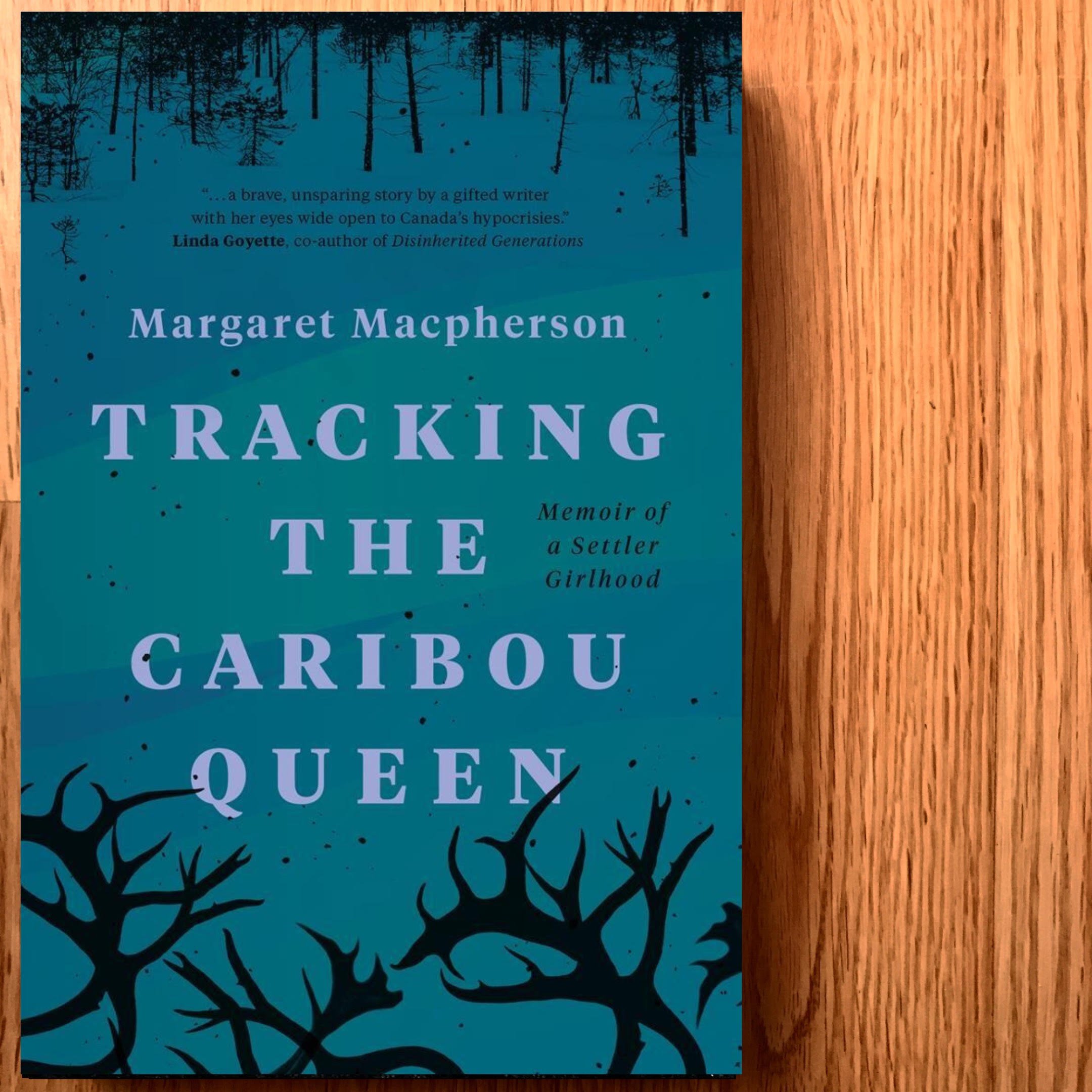By Lauren Bell
Tracking the Caribou Queen is Margaret Macpherson’s memoir of her settler childhood, in which she does the minimum of what every settler in Canada should be doing: coming to terms with our privilege and acknowledging our complicity in the colonialism and microaggressions that shape Canadian society today.
Macpherson’s childhood was spent in Yellowknife amongst her siblings and family, with much of her social interactions being tinted with their “otherness” from the individuals around them. She grew up painfully close to the colonialism of the North; her father was the principal of a local residential school. Now, as an adult, Macpherson is painfully aware of the discrimination that happened around her and looks back at her memories with a critical eye. That being said, I found that her analysis lacked a certain depth. For example, she would finish a narrative recount by asking, “Why? Why did I do this? Why did I think this?” yet never spent time exploring possible reasons to answer those questions, seeming resolved to stay in the ambiguity of it all.
Tracking the Caribou Queen started as a personal reconciliation project for Macpherson, as acknowledged in her author’s note. I think readers must be aware of this to ensure their expectations for this book. For instance, Tracking the Caribou Queen provides limited cultural and historical context for the events in the book; this is effective, as she is writing from the perspective of a child who wouldn’t be well versed in that information, however it may not meet the needs of a reader hoping for something more educative on the policies and colonial context that occurred in the North. This book is much more suited to someone looking for one personal perspective of life in Yellowknife in the 1960s–1970s.
I would have also liked to see some more character development for the individuals in her story. Despite seeing significant characters multiple times, I feel like they’re quite flat, and that I can’t attribute many traits to them. Colonialism and systemic racism, two major themes in the novel, are layered concepts and it would have been nice to see that reflected.
The part of the book that I was most pleased with was the ending. Macpherson finishes with public school and is finally able to acknowledge the biases she encountered and her privilege growing up, and she is beginning to make amends with this. Moreover, the theme of the final chapter seemed to include the importance of being in the moment, something that Macpherson struggled with throughout the memoir. Most importantly, it let the memoir conclude neatly, but not perfectly, reflecting the reality of settlerhood, and the long way still needed to go to reach true reconciliation.
Thank you to NeWest Press for the complimentary copy in exchange for an honest review.

